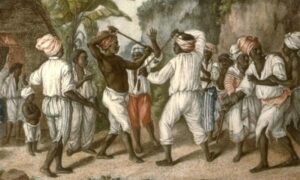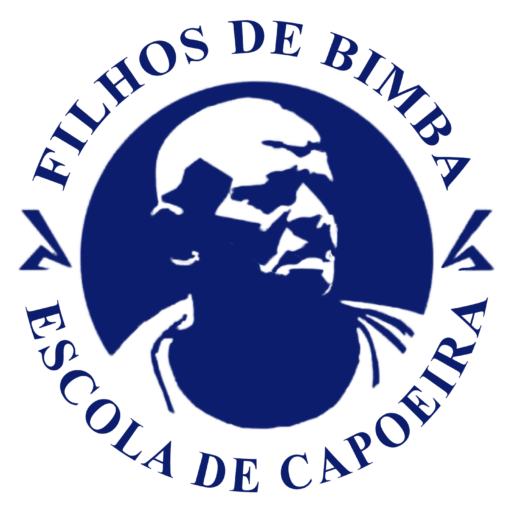 Santo Amaro da purificação in Recôncavo Baiano, a city marked by green Canaviais or sugar cane plantations, is a land rich in expressions of popular culture of African origin. The cradle of Bahian capoeira was also the stage for the birth of Maculelé. A dance with a strong dramatic expression, originally intended only to male participants, who danced as a group, beating grimas (sticks) at the rhythm of atabaques (instruments percussion) and the sound of singing in African dialect or vernacular.
Santo Amaro da purificação in Recôncavo Baiano, a city marked by green Canaviais or sugar cane plantations, is a land rich in expressions of popular culture of African origin. The cradle of Bahian capoeira was also the stage for the birth of Maculelé. A dance with a strong dramatic expression, originally intended only to male participants, who danced as a group, beating grimas (sticks) at the rhythm of atabaques (instruments percussion) and the sound of singing in African dialect or vernacular.
Its origin, however, as often happens in relation to all forms of folkloric African matrix, is obscure and unknown.
Like capoeira its roots are African, in fact, the word Maculelé comes from the name of the tribe, Makua which is the largest ethnic group in northern Mozambique, and also have a large population across the border in the Masasi District of Mtwara Region in southern Tanzania. Lele are the sticks used to fight, hence Maculelé.
Legend has it that the choreography of Maculelé has its roots in an incident that occurred in a Tanzanian village: one day the warriors left the village for hunting, there were only elder warriors, women and children. When an enemy tribe launched an attack, the elder warriors along with the women and children armed themselves with short wooden sticks and faced the invaders, showing an undeniable courage and even managed to defeat the enemy. Returned from hunting, the warriors saw the signs of the struggle and were informed of the fighting took place. At that point they decided to pay homage to the old warriors simulating the same battle in the form of dance. The dance would be a tribute to the courage of those warriors.
In the early twentieth century with the death of the great masters of Maculelé of Santo Amaro, this event was long forgotten, until in 1943 the Master Paulino Aluisio de Andrade, known as Mestre Popo do Maculelé, considered the “father of Maculelé” gathered friends and family teaching them the dance based on his memories, with the intention of raising again Maculelé at religious festivals.
“Maculelé is a dance and a fight at the same time. Defense and attack mixed with black rhythm.” (This is the definition Popo used a lot when talking about the rhythm of Maculelé).
Nowadays Maculelé is an integral part of Brazilian folklore activities and is frequently presented in the performance of the groups of capoeira.

